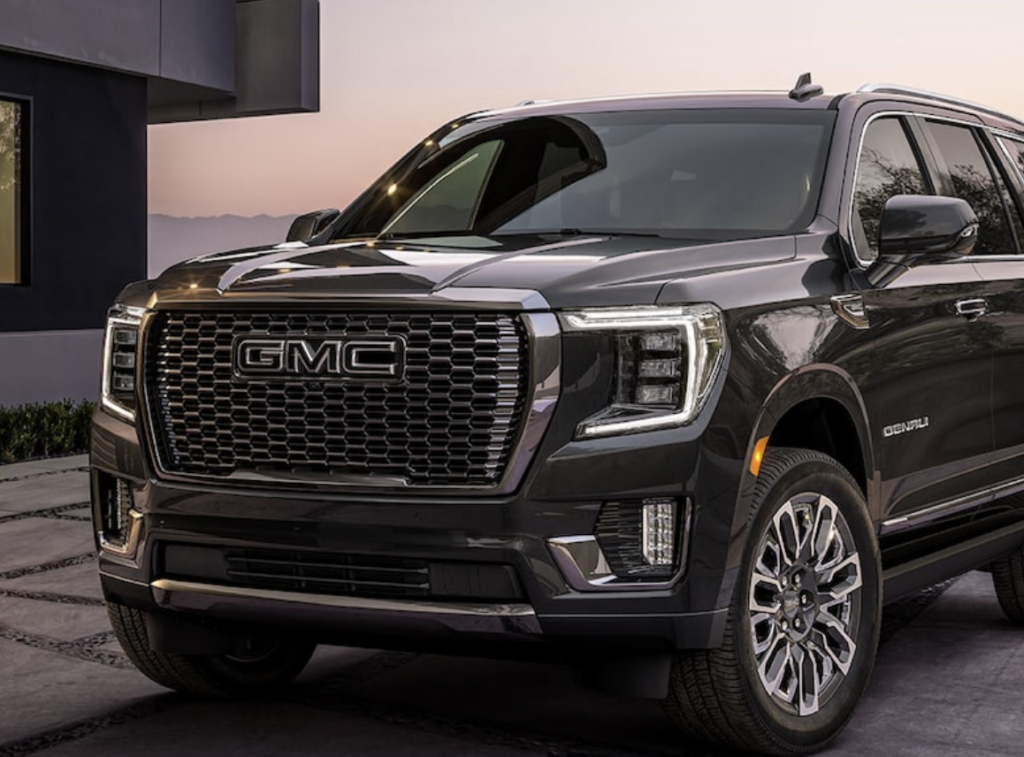General Motors Recalls Nearly 500K Vehicles Due To Serious Safety Issue
General Motors has issued an urgent recall over a safety issue that affects nearly 500,000 individual vehicles nationwide.
This article is more than 2 years old

General Motors is recalling thousands of large SUVs to fix a problem that can cause the third-row seat belts to malfunction. Last week, the National Highway Traffic Safety Administration indicated that the call back affects customers in the United States only. Faulty vehicles include Cadillac Escalades, Chevrolet Suburbans, Tahoes, and GMC Yukons that have third-row seats from the 2021 and 2022 model years. Owner notification letters are expected to be sent out via email on September 26th.
Documents posted by the safety regulator explain how rivets holding the buckle to the mounting bracket on both sides of the third-row seats may have suffered a manufacturing glitch. As a result, the safety device may not properly restrain a passenger during a potential crash which increases the risk of injury. “The rivet that retains the buckle to the mounting bracket on the left or right side third-row seat belt buckle assembly may have been improperly formed,” the NHTSA said about the General Motors recall.
According to CNN Business, the recall affects 484,155 vehicles. Fortunately, General Motors is not aware of any accidents or injuries related to the faulty seatbelts. But the carmaker did receive several field reports that could be related to the problem. The administration advised that dealers will inspect the rivet head formation on both the left and right side third-row seat belt buckle assemblies and replace seat belt buckle assemblies as necessary. The repairs will be provided free of charge.
Despite the setback, General Motors stock has rallied by almost 20% over the last month and remains up by about 5% over the last week, Forbes Reports. A few factors are driving the recent outperformance. Although the company’s second-quarter earnings were weaker than expected (as supply chain challenges continued to weigh on its cost base and shipments) revenue beat estimates coming in at $35.8 billion. That’s up about 4.5% compared to last year.
Additionally, investors were happy that General Motors maintained its previous earnings guidance for a full year, noting that it intends to scale up production soon. However, several macroeconomic factors may have affected the company’s finances as well. The United States GDP has contracted over the last two quarters, with inflation settling at about 8.5% for July. This could cause the Federal Reserve to go a bit easier with its rate hikes, potentially helping the rate-sensitive automotive sector.
Headquartered in Detroit, Michigan, General Motors is the largest automaker in the United States and was the largest in the world for 77 years. With manufacturing plants in eight countries, its four core automobile brands are Chevrolet, Buick, GMC, and Cadillac. The company also holds interests in Chinese brands Wuling Motors and Baojun as well as DMAX via joint ventures. Most recently, the car manufacturer announced a partnership with Honda to develop a series of affordable electric vehicles from 2027.
Each car will operate on shared battery architecture. But the branding will distinctly feature the General Motors or Honda logos. As previously reported, the companies also plan to develop cheaper batteries that improve vehicle performance and sustainability. The duo has already been looking into options like silicon, lithium-metal, and solid-state batteries. The automakers previously worked together on fuel cell systems and hydrogen storage in 2013. And Honda joined GM’s electric battery development in 2018 to support its efforts for fully autonomous driving.





